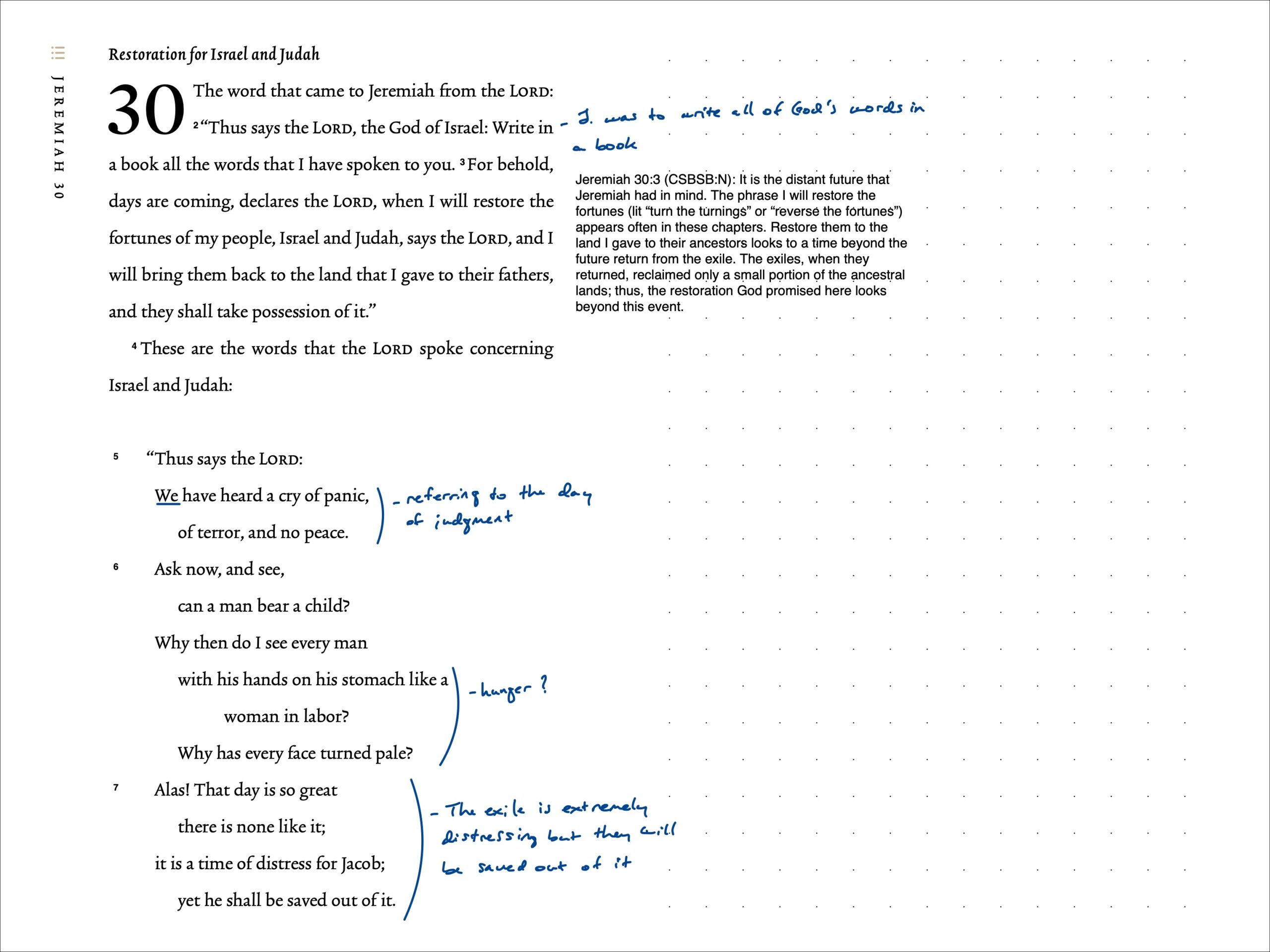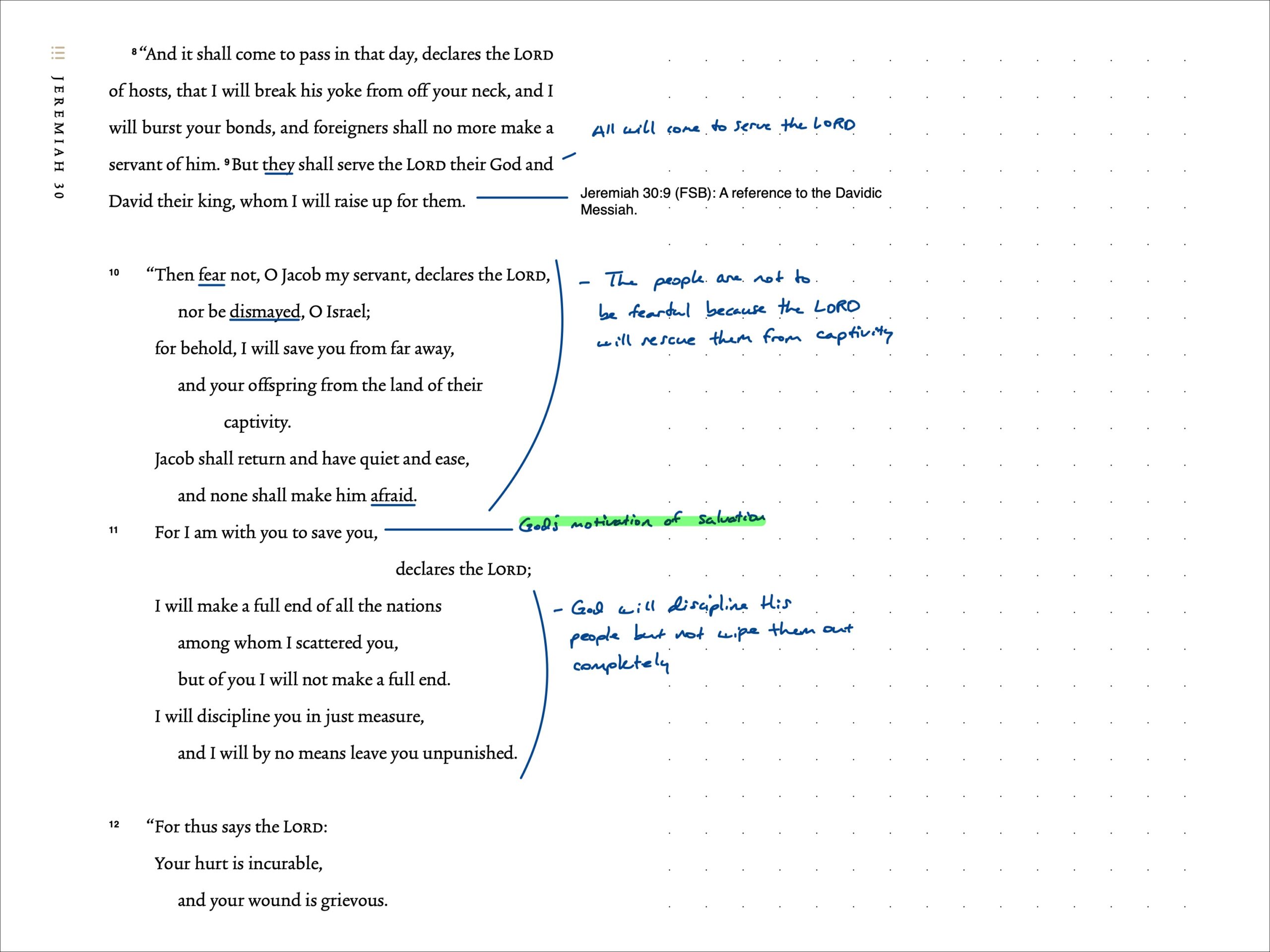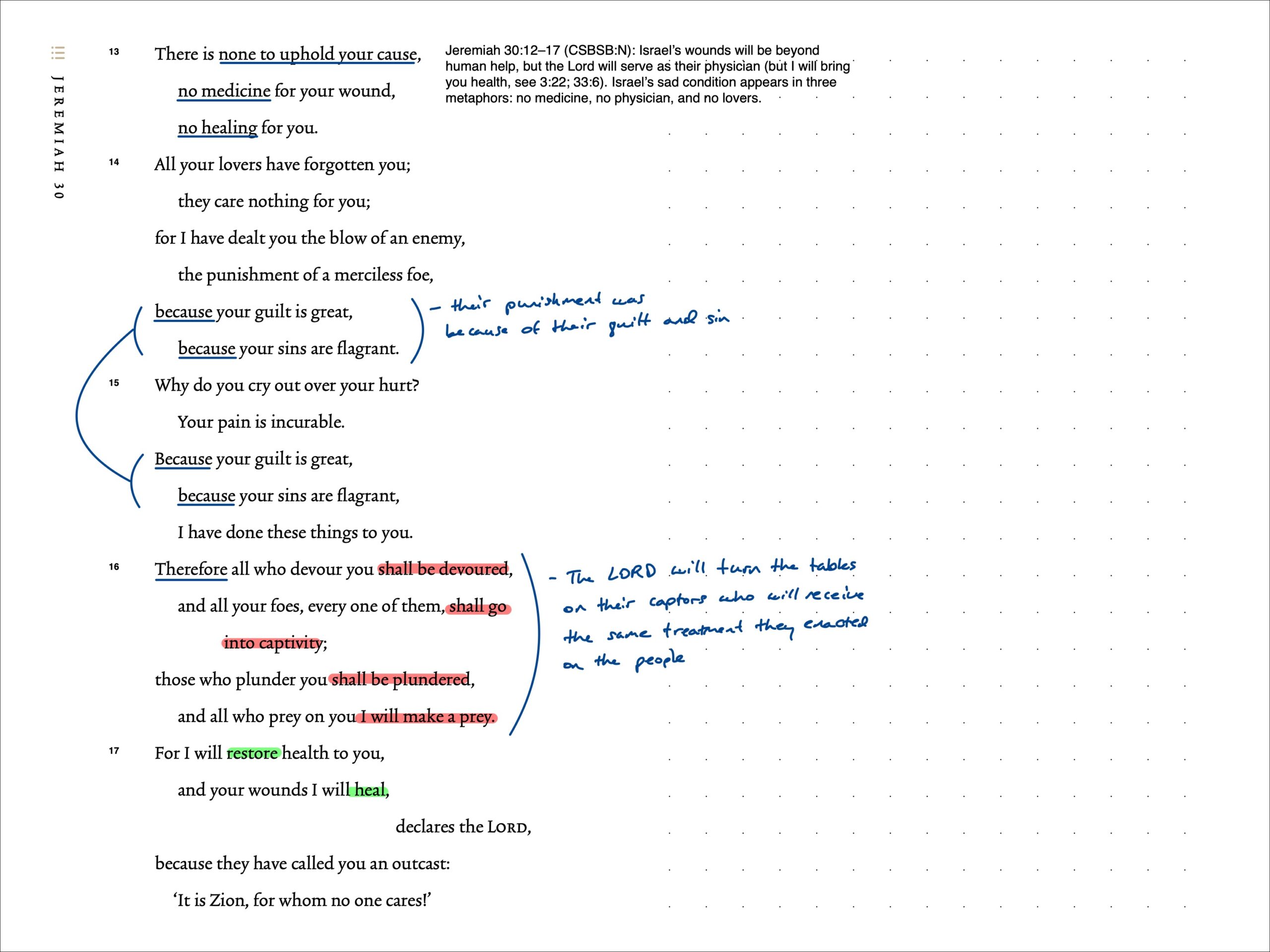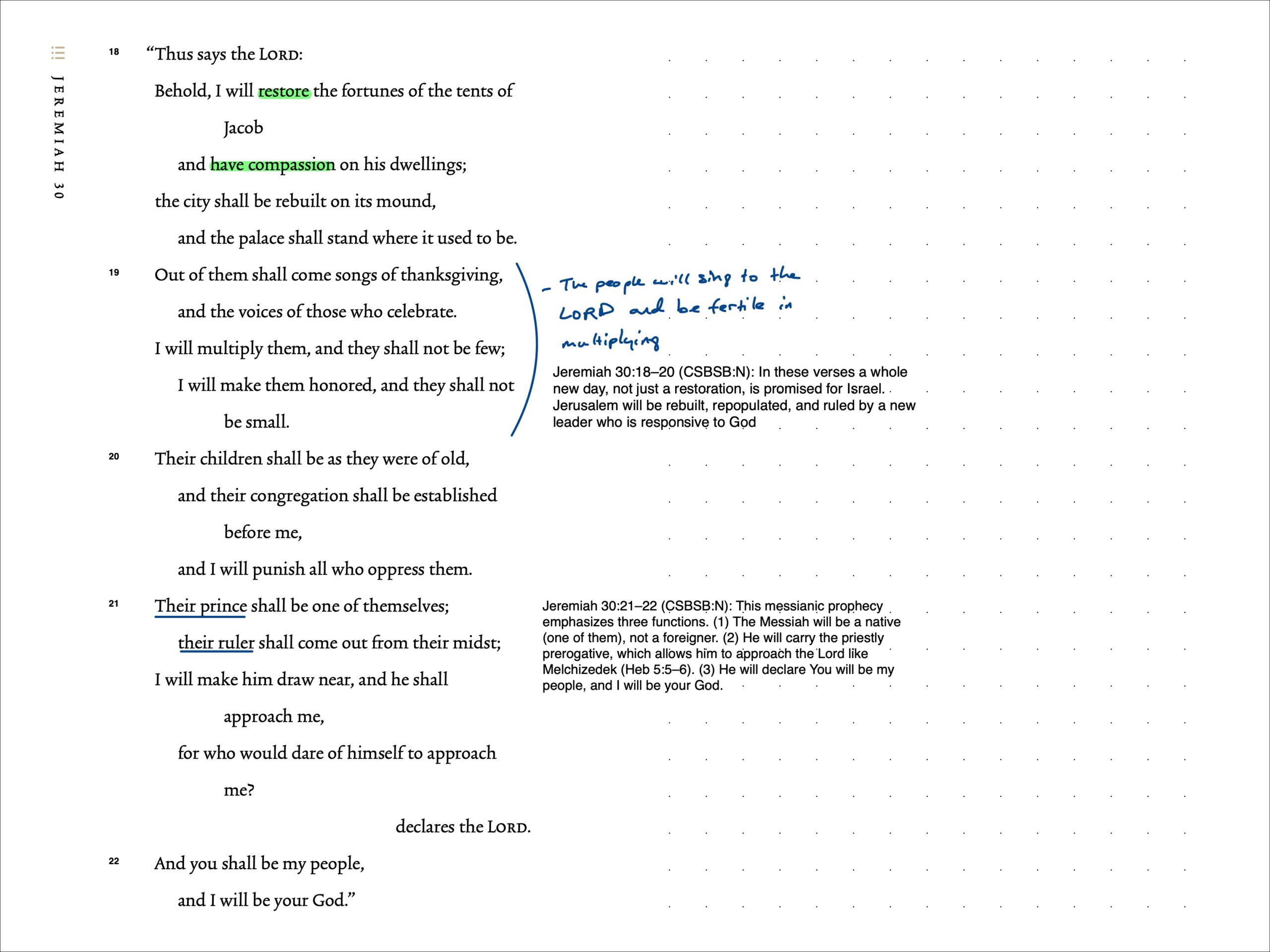| Date | Version | Reading Plan |
|---|---|---|
| @July 23, 2023 | ESV (2016) | ESV Prophets Plan 2023 |
Pericopes
- Restoration for Israel and Judah
Notes
The chapter opens with a command of God for Jeremiah to write the words He had spoken to him as there will soon be a day when He will restore the fortunes of His people. It is the distant future that Jeremiah had in mind. When they returned, the exiles reclaimed only a small portion of the ancestral lands, so the restoration mentioned here looks beyond this event.
The address of God begins in Jer. 30:5, where He acknowledges the difficulty of the exile and the coming day of judgment. Men are holding their stomachs as if pregnant and their faces have turned pale (Jer. 30:6). Yet, as difficult as this time is, they “shall be saved out of it” (Jer. 30:7).
In Jer. 30:8-9, God tells them that it shall come to pass that their yoke will be broken, they will no longer be servants of foreigners and all will come to serve the LORD. The new King they will serve will be from the line of David, a reference to the Davidic Messiah.
In Jer. 30:10, the people are told not to be fearful because the LORD will rescue them from captivity. The repetition of “fear” and being “dismayed” emphasizes the dread they must have been experiencing during the exile. But God assures them that His future rescue makes such fear unwarranted.
Jer. 30:11 is perhaps the summary verse of the chapter when God says to the people, “For I am with you to save you”. It succinctly states God’s ultimate motivation for salvation. God will discipline His people but not make of them “a full end”. The discipline of His people is always rooted in bringing hearts into right relationship with Himself.
In Jer. 30:12-17, God describes how the wounds of the people are beyond human help, but that He will serve as their physician. Israel’s sad condition appears in three metaphors: no medicine, no physician and no lovers. The reason is given in Jer. 30:14-15, that it was because their “guilt is great” and their “sins are flagrant.”
Jer. 30:16-20 represent a hopeful time in the future where the tables will turn on the captors of the people who will receive the same devouring and plundering treatment the people had received (Jer. 30:16). God will “restore the fortunes of the tents of Jacob and have compassion on his dwellings”. (Jer. 30:18). The people will sing to the LORD and be fruitful in repopulating Jerusalem.
Jer. 30:21-22 give a Messianic prophecy in that “Their prince shall be one of themselves” and “their ruler shall come out of their midst” (Jer. 30:21). Three functions of this Ruler are emphasized: 1) He will be a native of them, 2) He will carry the priestly role, 3) He will declare them as His people and that He is their God.
The final verses (Jer. 30:23-24) return the difficulty of the exile and of its necessity. While eventual rescue is assured, judgment must first be poured out on the guilty. God’s judgment will be like a sudden windstorm, a “whirling tempest” (Jer. 30:23). His wrath will continue until the purposes of His heart are completely fulfilled. It will be difficult for them to grasp while in the midst of it, but God tells them that, “In the latter days you will understand this.” (Jer. 30:24).
Application
There is such a beautiful balance of God’s justice, compassion and intention for salvation in this chapter. The verse that really struck a chord with me today was Jer. 30:11: “For I am with you to save you”. It illuminates some very important things.
First is that God is with us. He is present and intimately involved in our lives. His immanence is no better displayed than in His condescension as man to dwell among us. He walked as we walk, with capacity to experience everything as we do; the pain, the sorrow but also the joyful elation. This full embodiment of humanity provides assurance of His kinship with us but is also required in order for Him to be a worthy sacrifice, which ushers in the next important point.
God saves. His coming down to us had a singular objective; to pay the debt of death in order to restore and redeem the lost relationship with the Father. This He did not because of our innate desert, but solely out of the overflow of His love.
How great it is to be reminded of these things as look to gather today and celebrate Him as a chosen people.
Scripture Journal Notes
Commentaries & Resources Used
- ESV Study Bible. (Wheaton, IL: Crossway, 2008)
- Faithlife Study Bible (Lexham Press, 2016)
- Believer’s Bible Commentary (Thomas Nelson, 2016)
- CSB Study Bible Notes (Holman Bible Publishers, 2017)
- Matthew Henry’s Commentary on the Whole Bible (Guardian Press, 1976)
- The Bible: A Reader’s Guide (Sterling Publishing, 2011)
- The Infographic Bible (Zondervan, 2018)
- ESV Digital Scripture Journal (Crossway, 2019)




